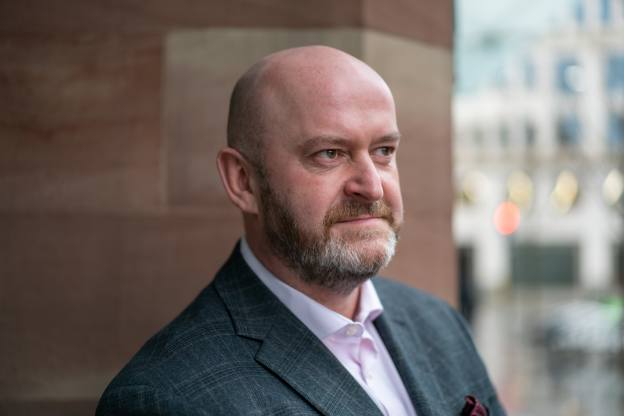
'We need an intervention that solves the problem customers tell us they've got'

He says the Retail Distribution Review and the consumer duty were both designed from the regulator's or market's point of view, when instead it should have started with the consumer, and the problems they say need solving.
The RDR has been successful in many ways, including raising the professionalism of advisers, but it has also created lingering issues, such as the growing advice gap.
He adds the consumer duty will go some way towards solving these unintended consequences, but it too had had the wrong starting point.
"Let's create a regulatory or a market intervention that solves the problem the customers tell us they've got, not necessarily the ones that we think that we've got," Howells says.
He notes one of the issues was that the money industry does not offer consumers all the resources they need in one place in the way other service providers would, such as a gym.
"Let's go to the consumer and say, 'what's the real problem we need to solve here?' and I think let's consolidate all of the help a customer needs in terms of their overall money short term and long term into one place and make it simple for them.
"Because for me the biggest challenge that the customer has got is they just simply still don't understand."
He says one of the good things coming out of the RDR was a better working relationship between fund managers and advisers, leading to the rise of vertically integrated models – something that could accelerate under the consumer duty as a focus on value will be expected to cover the whole investment chain.
"I don't think it means everybody is going to have to be in a vertically integrated model but I think there's going to have to be much more clarity and transparency about where each of them are," he adds.
"It's always been part of the problem; does the customer really understand? I'm not sure that the rank and file consumer, who is perhaps investing for the first time, does."
Howells, who used to be managing director of the Sesame network, says another consequence of the RDR was how it changed the skill set of adviser principals.
Whereas before they were advisers who ran businesses, now they are highly skilled business owners.
He said: "The RDR really signalled a change in the way that principal of financial planning businesses are, they are much more like business people now.
"Whereas before they were financial advisers who happened to own a business, I think now we have professional financial planners who are also, if they're the principal, very good business people.
"Moving to a fee basis for the first time forced you to address things like what's my cost to serve, how much do I charge a customer, what else needs to be in my business, do I outsource, what does my technology look like? From that perspective the RDR started the process of creating some really professional business people."
When the RDR was introduced 10 years ago Howells was working for Zurich, attending a host of adviser roadshows and "talking only about the RDR".
He said the big things advisers were worried about were qualifications, the move to fees, the debate about independent versus restricted, and capital adequacy.
"As it turned out, three of the four were non-issues. The only one that really became an issue for a lot of advisers was the attaining of their qualifications."
Since the RDR was introduced SBG has made a number of changes to its business, not least the closure of its network of investment advisers in 2015, following problems with pension mis-selling.
As such, many of the new rules introduced by the RDR did no longer affect SBG directly. However, Howells says the RDR had an indirect effect on the service its business support arm Bankhall was giving advisers.
Its clients no longer needed help with just compliance, now they were asking for guidance on their business model, he notes. Issues around fees and how to structure them and other business decisions began to heavily feature on the menu.
These days advisers are asking for help on structuring exit routes, and potential challenges to the financial planning model coming from the current debates around delivering value for money, which also features in the consumer duty.
"A lot of financial planners are concerned that [ongoing percentage-based fees] will come to an end, so what does the next model look like?"

For networks in general the RDR was probably good news, comments Howells, referring to greater professionalism and consumer confidence.
"One of the opportunities we've missed is, have we really promoted the positive changes that we've seen enough to the end consumer? I don't think we have."
Whereas clients tend to have huge trust in their adviser, there is not enough trust in the overall sector, he says, "and everyone gets tarnished with the same brush, so if something happens in the banking environment the whole of the financial services sector feels the weight of that."
He also says there is "far too much emphasis on cost" when it comes to investments. "It almost seems to be 'cheap is good', whereas I think the focus should be on value from a customer perspective.
"There's a reason why we all buy different cars, it's that we all want different things from that car. Customers want different things from their advisers and therefore they should be the determining factor as to what is it that's value in terms of what they pay.
"I worry that if the emphasis continues to be on cost what we do is we actually restrict the choice the customers have and we push them into a box that says the starting point is everything is in passive and we start from there."
The flip side was that advisers were questioning whether they are delivering value, he notes. "Some of the moves we've seen there, the price of platforms etc, are much more realistic now."
carmen.reichman@ft.com



